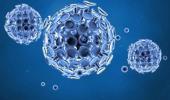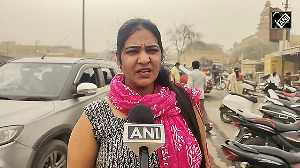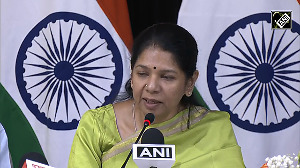'Mortality or hospitalisation has not increased in South Africa because of the new variant.'
'There is nothing to show so far that it is more infectious.'
'I am of the opinion that at the moment, there is no reason to panic.'
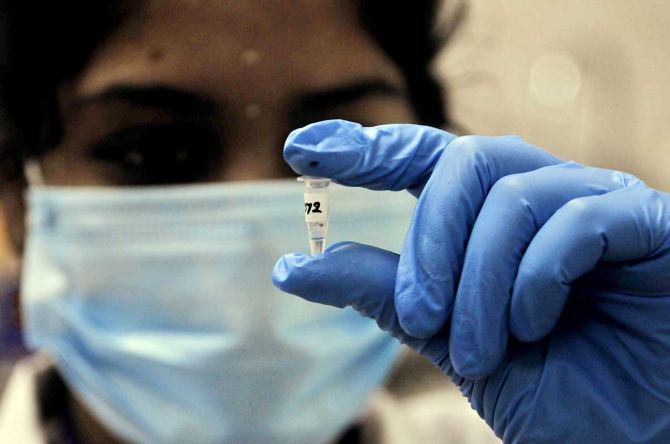
After the Delta variant that originated in India early 2021 and created havoc all over the world, a new variant has emerged which the WHO has described as a Variant of Concern (VoC).
Omicron, the new variant, first detected in Botswana has already spread to many countries in in Europe, UK, US and Australia.
Is it as dangerous or more dangerous than the Delta variant?
Should the world be in panic mode?
No, Dr Rakesh Mishra, former director, Centre for Cellular and Molecular Biology, tells Rediff.com's Shobha Warrier.
Dr Mishra is currently the JC Bose National fellow and Distinguished Professor at CCMB, and also the director, Tata Institute for Genetics and Society, Bengaluru.
Dr Tom Peacock, a virologist at Imperial College, London, first tweeted about the new covid variant, Omicron. He wrote that he expected it to be worse antigenically than any other variant including the Delta variant. But many other experts are of the opinion that it is too early to say it is more dangerous than Delta. What do you say?
The reason why some people call it very dangerous, and that it will play havoc is because unlike many other variants, it has many mutations, many changes.
There are some 32 mutations in the S protein or the spike protein of the virus.
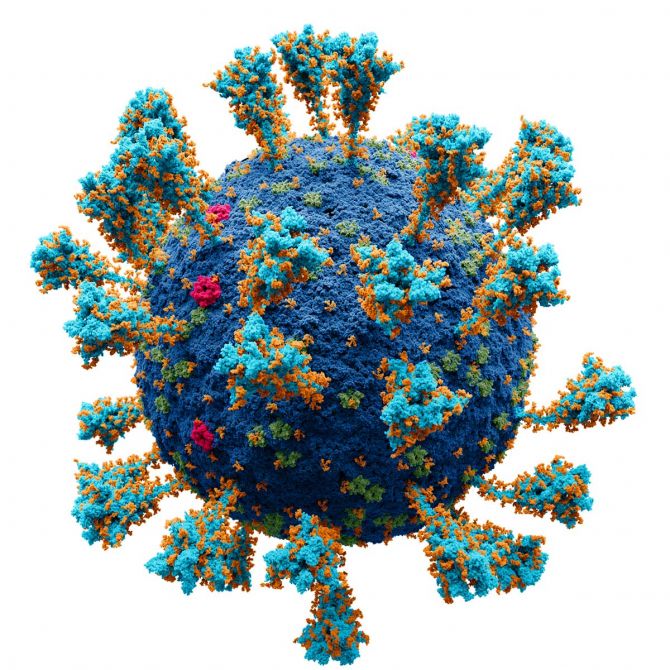
Is that the difference -- mutation in the spike protein -- from the earlier mutations?
Earlier mutations also have been in the spike protein which is the main antigen component of all the structural proteins of SARS-Covid 2.
The difference this time is, this one has around 32 mutations.
And the reason why many people are worried is because the vaccines are targeted to work in the S-protein. And if the S-protein changes, the vaccines also might become less effective. That is one interpretation.
These vaccines target the particular region of the virus which is required for the entry into the cell.
These mutations have made the virus with a high affinity for the Ace2 receptor, the receptor that binds to the spike protein. But if the virus is able to bind to the receptor, the vaccines also will be able to neutralise the virus.
That's why most scientists do not feel that the vaccines will become totally ineffective and the virus will play havoc.
Anyway, it will take two weeks to understand the relation between the effectiveness of the vaccine, reinfection, etc.
The other reason to not worry is, just because all the mutations come together, it will not become more lethal.
A virus doesn't behave that way because the virus takes the shape of the protein based on the changes.
A change in one context can be different from the change in another. So, here is no reason to conclude that all the mutations will add up and this virus will be more dangerous.
Also, we see that mortality or hospitalisation has not increased in South Africa because of the new variant.
There is nothing to show so far that it is more infectious unless we get data from other places and rule out any super spread event.
I am of the opinion that at the moment, there is no reason to panic. But we must take it as wake-up call and be careful.
It may go the Delta way as the symptoms are very similar and not worse than Delta.
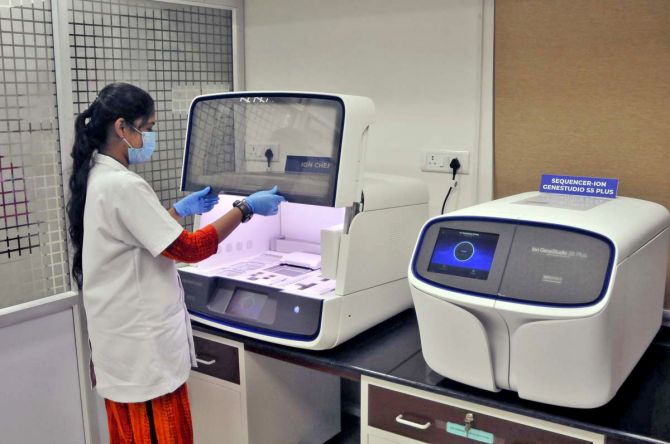
But the whole world has panicked. Europe and the UK have banned travel from South Africa which they say is very unfair...
It is unfair. South Africa was very open about the virus, and let the world know about its existence the moment they found it.
Had they kept it a secret, what would the world have done?
Also, any variant can emerge from anywhere. Therefore, we should have strategy that encourages data and information sharing and transparency.
South Africa should not be punished for alerting the world. Other mutants have earlier emerged in the UK, Brazil, India, etc., and this also would have happened anywhere.
By reacting this way, you are going to create a situation where countries will start hiding.
It is not that you cannot control the variant, you can by doing more testing, and when a person is found positive, isolate him/her and do the genome sequencing of the virus.
80%-90% of infected people don't need any hospitalisation and they recover without any problem.
This is what you should do, and not shut down the borders as that hurts the economy and eventually economically weaker sections of society.
The South African president said the travel restrictions imposed on them by Europe, the UK, etc for being open about the variant were totally unfair and unjust ...
Very true. It is very unfair of the European countries who are sitting on a pile of vaccines to behave this way. This is a poor show by the rich nations in handling the pandemic.
This will lead to many countries hiding the facts.
Is it not a lesson for those countries that have double vaccinated and booster vaccinated their citizens ignoring the needs of the poor countries, that unless the whole world is vaccinated, they also are not safe?
Exactly.
Vaccines are not for the rich nations alone; they are for everyone.
We have to have herd immunity at the world level for the pandemic to go away.
If not, the virus will continue to mutate and one day, it will come with a variant against which the existing vaccines may not work or the symptoms may be more severe.
A new variant can originate anywhere and there is no boundary for the virus; it spreads very fast.
Now, it originated in Botswana but has already reached many places.
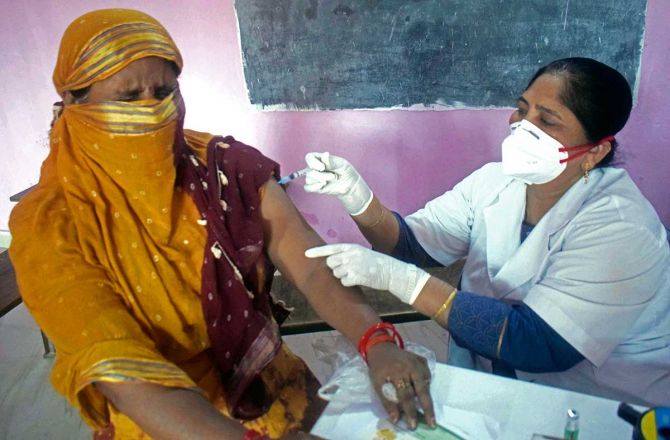
This new variant originated in Botswana where vaccination rate is very low. Do viruses mutate more if it gets a chance to spread more?
Yes, that is the only reason why the virus mutates more. If people are vaccinated, the chances of the virus to spread is less and thus the mutation also comes down.
Viruses have the mechanism to create mutations, and the more infectious ones will survive.
If you leave half of the world without vaccines, the covid variants which are more infectious will emerge there, and they will survive and spread too.
So, the plan of the world should be to vaccinate everybody, and not a select few.
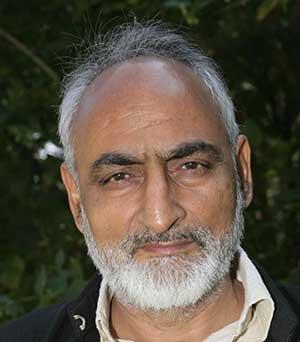 IMAGE: Dr Rakesh Mishra. Photograph: Kind courtesy Dr Rakesh Mishra
IMAGE: Dr Rakesh Mishra. Photograph: Kind courtesy Dr Rakesh MishraThere are only 600 odd cases reported in South Africa while you have more than 50,000 cases in the US and the UK but the variant came up in South Africa...
There are lots of immune compromised AIDS patients in that region. Perhaps it is related to that. When an immune compromised person has this virus for a long time, or a person with one dose of vaccine gets infected, that works as selection screen for more infectious mutant. But then it is not yet confirmed.
It is always a matter of chance where a strong variant can happen. Mutation is a random event.
In India itself, we have detected more than 25,000 variants, but they didn't survive except the Delta variant. That was one year ago.
Pfizer and Moderna say that they can come up with a new vaccine if needed in no time as the technology is mRNA....
mRNA is a revolutionary technology. It will be a gamechanger in healthcare.
Yes, you can come with a new candidate in 5-6 weeks and in 3-4 months, you can do a trial and in 6 months' time, you can actually come with a new vaccine.
But I think the existing vaccines are effective against the new variants particularly Covaxin which uses the whole virus.
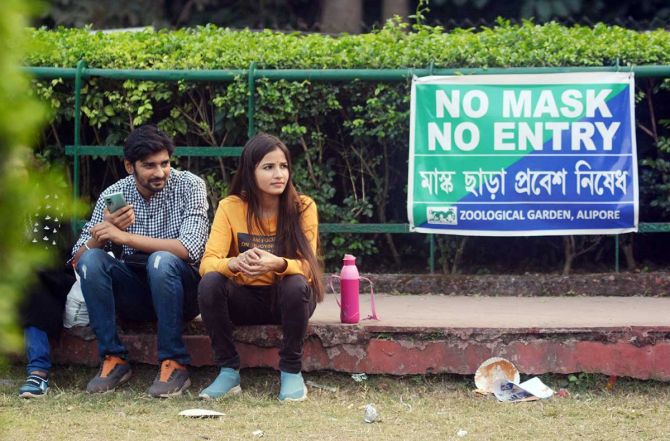
The whole world is in a panic mode. As a scientist, do you think it is necessary?
Not at all. There is no reason to be in panic mode. Other than the number of mutation, there is no indication that Omicron is more infectious or lethal. It is only speculation that is going on. Nothing is proven.
But it is good that people are alert.
Like Dr Soumya Swaminathan said, the new variant has given the whole world a wake-up call.
We have to be extremely careful as always; follow covid rules of wearing a mask and maintaining social distance, strictly.
But there is no need to panic now.
Feature Presentation: Ashish Narsale/Rediff.com




